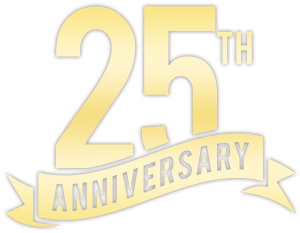Wrongful Death Attorneys in Lakeland
When a loved one dies, coping with the loss is always difficult. When the death occurs unexpectedly due to an accident injury caused by someone else’s negligent or wrongful actions, the pain of loss and difficulty accepting the death can be even worse. Family members may very well wonder why their loved one had to die and how they are going to manage without them.
We all know you can’t turn back time and bring your loved one back. However, you may be able to find some peace and acceptance if you hold the responsible party accountable for their negligence and are compensated fairly for your loss. Experienced Lakeland wrongful death attorneys can help with this endeavor.
The trusted Lakeland attorneys of Dennis Hernandez & Associates have helped many families hold the people responsible for their loved one’s deaths accountable for their actions, and we would be honored to help you. We will thoroughly assess all of the compensation you deserve for your loss and support you with compassionate guidance and communication throughout the entire legal process. We want to advocate for you and your family and look out for your best interests during this challenging time.
What Is a Wrongful Death Claim?
Most deaths due to accidents that are caused by someone’s wrongful or negligent actions can be considered wrongful deaths under Florida law. In fact, according to the Florida Wrongful Death Act, a wrongful death is the death of a person that is caused by the wrongful act, negligence, default, or breach of contract or warranty of any other person.
To have legitimate grounds for a wrongful death claim, you have to be able to show that someone else’s negligence caused the fatal injury. Specific legal standards of proof for negligence vary with the type of negligent or wrongful act and the fatal injuries that resulted. However, in all cases of wrongful death, you have to be able to prove that:
- The negligent party or parties had a legal duty to the deceased victim.
- The negligent party or parties failed to meet their legal duty.
- The negligent party or parties’ failure to meet their legal duty caused fatal injuries.
Product liability, premises liability and medical malpractice cases provide examples of how these legal standards work. Manufacturers, for example, have a legal duty to ensure that the products they manufacture are safe when consumers use them as they were intended to be used. If a manufacturer fails to ensure the products are safe and a defective product fatally injures a consumer who was using the product as intended, the manufacturer’s negligence could be seen as having caused the fatal injuries, and they could be held liable for wrongful death.
Similarly, a property owner and/or manager has a legal duty to keep his property in reasonably safe conditions for guests and other visitors to the property. If he does not repair a structure he knows is dangerous and does not warn people visiting the property of the danger, he could be viewed as having failed to meet his legal duty. If the dangerous conditions on the property cause someone’s fatal injuries, the property owner’s and/or manager’s negligence can be viewed as having caused the injuries, and he could be held liable for wrongful death.
Doctors and other healthcare professionals also have a legal duty to provide healthcare services that are of the same standard of quality that a reasonably prudent healthcare provider in the same field of medicine would provide. If a doctor does not meet this standard of care, then he could be viewed as having failed to meet his legal duty. When a patient is fatally injured because his doctor didn’t meet the standard of care, the doctor’s negligence could be seen as having caused the fatality, and he could be held liable for wrongful death.
How Do Wrongful Deaths Occur?
As the examples above suggest, wrongful deaths can occur in many different circumstances. A car crash caused by an impaired driver that causes fatal injuries, a doctor’s diagnostic error that leads to a patient’s death, defective equipment that burns and causes a fatal injury, and a pool without standard safety measures that leads to a child’s drowning could all be wrongful deaths.
The circumstances surrounding fatal accident injuries can vary widely, but most wrongful deaths occur due to:
- Medical errors – According to Johns Hopkins School of Medicine, ten percent of all U.S. deaths are due to medical errors or medical negligence. These medical errors include medication errors, diagnostic errors, surgical errors and other serious mistakes made by healthcare professionals.
- Car accidents – According to the National Center for Injury Prevention and Control, car accidents are a leading cause of injury fatalities in the U.S. When an impaired, distracted, aggressive or in other ways negligent driver causes the fatal car crash, the death is considered a wrongful death.
- Falls – According to the National Safety Council, falls are the third leading cause of injury deaths in the U.S. If a fatal fall occurs because of dangerous conditions on someone’s property or because of a defective product, the death may be a wrongful death.
- Workplace accidents – Fatal accidents can occur at any workplace. However, they are more common among people who work in construction, transportation, and law enforcement. If a fatal accident occurs because of defective equipment or because standard safety procedures were not being followed, the death could be a wrongful death.
- Drownings – According to the Florida Department of Health, annually in Florida, enough children to fill three to four preschool classrooms drown before their fifth birthday. If a drowning occurs due to lack of adequate pool safety measures, the death could be a wrongful death.
Who Can Pursue a Florida Wrongful Death Claim?
Pursuing a wrongful death claim may seem overwhelming following the sudden loss of a loved one, but doing so could actually benefit you and your family for years to come. The experienced wrongful death attorneys of Dennis Hernandez & Associates want to help you through the legal process with compassionate, expert guidance and support.
According to the Florida Wrongful Death Act, your loved one’s personal representative (typically the Executor of the estate) is the person who can initiate a wrongful death claim to recover damages (compensation). However, both the estate and survivors may be entitled to recover damages. A spouse has the first right to damages, followed by the children of the deceased. If there is no spouse or children, the parents of the deceased can collect damages. Other blood relatives and adoptive siblings who were dependent on the deceased for support or services may also be entitled to compensation.
What Compensation Can Be Obtained with a Florida Wrongful Death Lawsuit?
The deceased person’s estate and his or her survivors can both recover damages with a wrongful death lawsuit in Florida. The damages for the estate, which are ultimately distributed to beneficiaries and/or legal heirs of the estate, are intended to provide compensation for injuries and expenses that occurred before the death and/or are related directly to the death, including:
- Lost wages and other earnings – The money your loved one could reasonably have been expected to make if he or she had lived.
- Medical and funeral expenses – The expenses that were paid directly by the estate, including those incurred for medical procedures, time in the hospital or rehab facilities, medical equipment, medication, etc.
- Pain and anguish – If your loved one suffered physically and emotionally because of the injuries and their effects on his life, compensation may be available.
Survivors are also entitled to pursue additional damages to compensate them for their suffering and losses following their loved one’s death, including:
- Loss of companionship. Surviving family members may be able to obtain compensation for the loss of companionship, protection and support of their loved one.
- Loss of services. Survivors may also be able to obtain compensation for the value of the services their loved one would have provided from the time of the injury until his or her death and into the future. These services might include:
- Housework. If your deceased loved one took care of the home, shopping and meal preparation, you may now need funds to pay someone to do these chores.
- Childcare. If your deceased loved one took care of your children, you will now need funds to pay for that help.
- Elder care. If your deceased love one took care for an elderly family member at home, the care will be another expense you will now be responsible for.
- Home maintenance. If your deceased loved one took care of common home repair and yard maintenance jobs, you will now need funds to pay someone to help with those tasks.
- Emotional pain and suffering. Surviving spouses and minor children (or parents, if the victim was a minor child) may also be awarded non-economic damages to compensate them for their emotional suffering due to the death.
Calculating the total amount you could potentially recover with a wrongful death lawsuit can be difficult, since you need to consider losses that do not have a definite monetary value. However, an experienced Lakeland wrongful death attorney will be able to assess all of the damages you have suffered and advise you on how much you should be entitled to obtain for the losses and suffering you have endured.
Experienced Lakeland Attorneys Committed to Helping with Your Wrongful Death Claim
If your loved one was fatally injured by someone else’s negligent or wrongful actions, the experienced wrongful death attorneys of Dennis Hernandez & Associates, PA want to know what happened so we can help. We know how difficult life can be after a loved one dies and want to be by your side helping you handle some of the financial and legal challenges you’re facing.
At Dennis Hernandez & Associates, we are committed to achieving justice and full and fair compensation for your pain, suffering and losses. We will:
- Ensure that all the evidence necessary to prove negligence is collected, examined and presented in a timely manner.
- Negotiate assertively with insurance company representatives and attorneys on your behalf.
- Prepare a powerful case proving wrongful death and your right to recover damages for the financial and emotional impact of your loved one’s death.
- Use our litigation skills and legal experience to fight for the full compensation you deserve.
- Provide the individual attention and transparent communication you want to guide you successfully through the legal process.
- Never back down in the fight for justice.
Many lawyers will try to settle early with insurance companies to avoid going to trial, but we won’t settle for less than you deserve. We will not back down!
Please bear in mind that Florida has a two-year statute of limitations for wrongful death claims, so you must file within two years of your loved one’s death or you waive your right to hold the negligent party accountable and recover damages.
Call our Lakeland office today at 863.888.0000 or fill in the FREE CASE EVALUATION form on our website to get started on your case.





